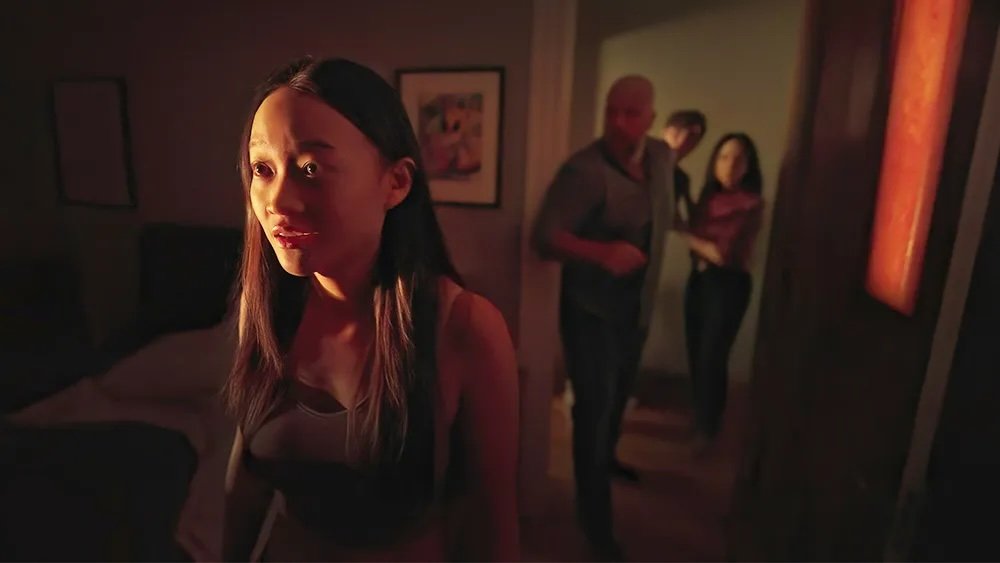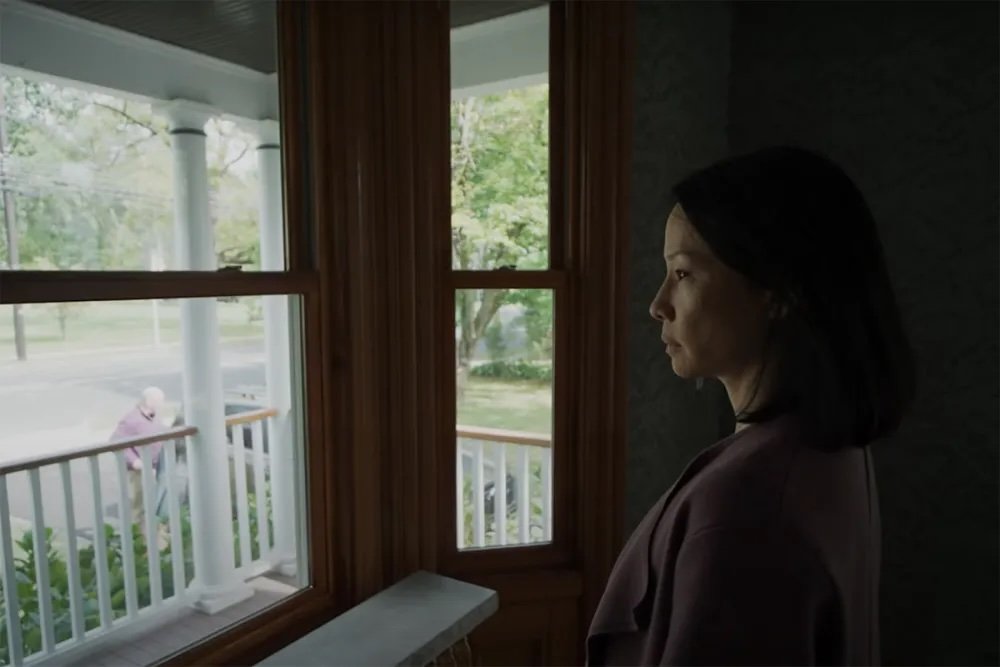“Presence” - Film Review
What is a ghost if not the lingering remains of something that once held great importance? Grief, love, and loss all manifested in some unnatural presence that remains when the physical is no longer. A presence of that nature is the focus of Steven Soderbergh’s aptly-titled latest film, Presence. Soderbergh is an innovative filmmaker. He shot 2018’s Unsane on an iPhone 7 Plus, and the following year shot High Flying Bird on an iPhone 8. For Presence, Soderbergh used a more traditional camera, but treated that camera as a character all its own.
Parents Rebecca (Lucy Liu) and Chris (Chris Sullivan) have brought their children, Chloe (Callina Liang) and Tyler (Eddy Maday), to an open house. Like many other parents, they want to find a nice house in a good school district so their kids will be set up for the future. Or one of their kids will be set up for the rest of their life. Tyler is Rebecca’s pride and joy, a future swimming star with a Michael Phelps poster hanging above his bed and trophies filling his shelves. Rebecca barely acknowledges Chloe, despite the clear pain she’s in. Two months ago, Chloe’s best friend died from a drug overdose and she’s reeling from the loss. Her father is attentive, but the two are outnumbered by Rebecca. Their new house has a presence that follows them as they move from room to room, but only time will tell if its intentions are good.
neon
Presence is told through the point of view of the presence, with the camera gliding around the gorgeous family home nestled in a quaint Massachusetts (likely) neighborhood. Presence is not the first film to use the camera as a stand-in for a character, but it’s still a unique choice. Unlike Nickel Boys from 2024, where the characters often make direct eye contact with the lens, it’s far rarer for one of the Presence characters to look down the barrel and into the eyes of the audience. When these moments happen, it’s a thrill because it’s an unexpected acknowledgement. Much like the fourth-wall breaks in Fleabag, when a character looks at the camera in Presence, there’s an immediate sense of discomfort because our role as the audience is to observe. We are not meant to be seen or perceived, yet there are characters who are aware of our existence. It’s a breath-catching moment when one of the characters in Presence can sense our existence.
For the first two-thirds of the film, Presence is surprisingly tender in its exploration of Chloe’s grief and its impact on the already-fractured family dynamic. Presence bucks the conventions of a traditional ghost-centric horror flick by avoiding jumpscares and really living in the uncomfortable silence that comes from loss. The final third of the movie takes place when the parents leave the kids alone for the weekend and Chloe invites her kind-of boyfriend, Ryan (West Mulholland), to come over. They initially bonded over Chloe’s loss because Ryan feels a similar sense of teenage sadness. He’s frustrated that no one at home seems to care about him and that he has no control over his life. The manifestation of this anger comes across as a bit far-fetched, and the final-act culmination comes about quite quickly. For all of its slow-moving, observational reflections on loss, the ending is rushed and at odds with the quiet beginnings.
neon
Presence is a different type of ghost story, one less concerned with fear and more interested in the way a loss can haunt us. How the absence of a person can manifest into something far larger than we can comprehend and touch every facet of our lives. Presence is not horror in the way one might expect, but it speaks to the deeply human fear of ceasing to exist.
support your local film critic!
~
support your local film critic! ~
Beyond the Cinerama Dome is run by one perpetually tired film critic
and her anxious emotional support chihuahua named Frankie.
Your kind donation means Frankie doesn’t need to get a job…yet.
Follow me on BlueSky, Instagram, Letterboxd, & YouTube. Check out Movies with My Dad, a new podcast recorded on the car ride home from the movies.


